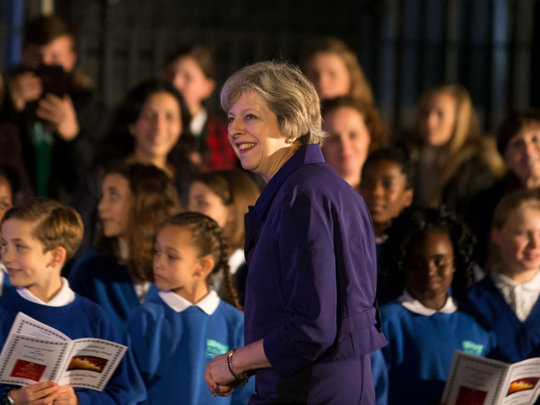
Theresa May’s refusal to provide a “running commentary” on Britain’s departure from the EU — the phrase borrowed from Gordon Brown when he was applying his famous five tests to the euro — was never going to last, for the simple reason that nobody was going to stand for it.
Diplomatic reticence is one thing. A vow of silence is quite another. On the same day that she pledged “a red, white and blue Brexit”, May agreed to publish the outline of her negotiating strategy before triggering Article 50. In the short term, this represents a climbdown. Ministers remain adamant that the referendum result and crown prerogative empower them to begin talks without parliamentary agreement. But today’s opposition motion calling for a statement of her objectives posed a significant challenge to the Tory party management Since the Richmond by-election, the government has had a working majority of only 13. Had May tried to thwart the motion, it would have taken but a handful of remainer Conservatives to embarrass her hugely and undermine her authority. Instead, the government has agreed not to oppose the motion — subject to an amendment calling upon parliament to “respect the wishes” of the people and trigger Article 50 before the end of March.
This is May’s suggested quid pro quo: a measure of transparency now in return for a relatively smooth parliamentary passage next year. This makes strategic sense. Whatever they say to the contrary in public, the PM’s allies are expecting the high court ruling on parliament’s right to vote on Article 50 to be upheld on appeal. Which means, in turn, that a grand parliamentary debate over the EU will be the main event of the next six months. Better to concede the principle of openness now than in the spring. Better to wring an undertaking from MPs — albeit a symbolic one — that they will respect the referendum result.
Whether or not the Commons will agree to this amendment has yet to be seen. But May has certainly caught the remainers off guard with this tactic, agreeing to a concession that they expected would be much harder to secure. It edges the PM closer to the moral high ground, and strengthens her claim to be the authentic champion of democracy. She signals that she respects both the referendum and representative democracy, and challenges MPs to follow suit. As a holding position, it is a cunning plan.
That said, her team is under no illusions about the task ahead. “It will be bloody, no question,” says one senior source. The spectre of Maastricht looms over the Commons debate expected next year, for which today’s motion is but a dress rehearsal. May became an MP in 1997, the year John Major’s government was destroyed by New Labour. She saw at first hand how a party torn to pieces by rebellion fared at the polls. She is in No 10 only because David Cameron, like so many Tory leaders, was brought down by the European question. If she wants to last more than a year as PM, the passage of article 50 through parliament cannot be a 21st-century rerun of the horrors that afflicted the Conservatives in 1993.
Her position is not as precarious as it seems. Unlike Major, she can brandish a referendum result in the faces of those who would obstruct or delay Brexit. There is talk of some Tory associations threatening to deselect MPs who try to do so. And most Conservative remainers would be satisfied with a soft Brexit that — somehow or other — gave Britain continued access to the single market.
Yet the gamble remains colossal. Though May is determined not to be defined solely by Britain’s departure, she knows that history will judge her primarily on this basis. Her parliamentary party knows that too. And so today the great contest of wills begins.
— Guardian News & Media Ltd
Matthew d’Ancona was previously editor of the Spectator and also writes for the Evening Standard and GQ.










